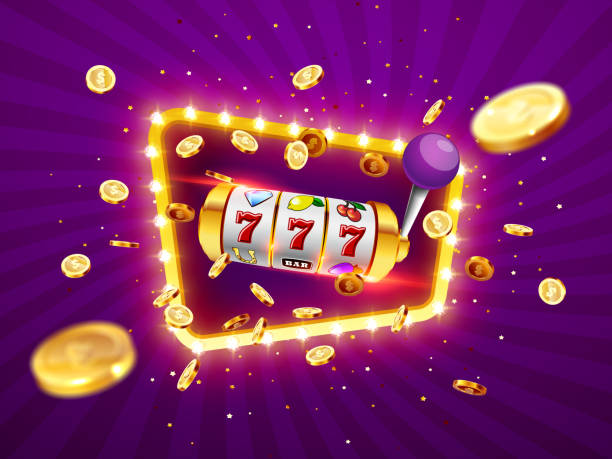
The Sound Of Luck: Why Casinos Use Music Strategically
When you first walk into a casino, before you even notice the flashing lights or the spinning reels, you hear it. That carefully crafted soundtrack, a blend of energy, hope, and just a sprinkle of suspense. It’s not random. Every melody, tempo change, and jingle has been engineered to make players stay a little longer and feel a little luckier. The same goes for online casinos, where the hum of background audio sets the tone even before you click “Spin”. I came across https://www.brigades.info/ recently, and I noticed how it uses a subtle yet purposeful music selection that mirrors the excitement of physical casino floors.
That ambient tune is not just decorative, it’s psychological. You might think you’re immune, but the rhythm of sound actually guides your play patterns and influences perception of time. There’s a science to the way casinos use sound, from old-school slot machine chimes to the quiet beats underlining a virtual roulette table.
The Psychology Behind The Sound
Psychologists who study gambling behavior have long pointed out that music triggers emotional responses. Low-tempo sounds tend to calm, while fast beats make people take more risks. Casinos mix both depending on what part of the floor or game you’re in. Slot areas often use upbeat jingles, while poker tables lean to a low hum, keeping concentration high.
In online gaming, it’s even more refined. Developers use music not just to entertain but to make navigation, bonuses, or winning animations feel rewarding. When you hit a jackpot, there’s that familiar burst of sounds tuned to frequencies proven to trigger small doses of dopamine. It’s no coincidence.
From Real Floors To Digital Platforms

Think about walking into a Las Vegas casino versus opening an app. Physical casinos rely on overlapping sounds — coins clinking, the murmur of voices, music surrounding every section. Online casinos replicate that experience digitally. Everything you hear is intentional, from the gentle swirl as a roulette wheel spins to the celebratory chime that confirms your deposit went through. It creates continuity, bridging the real and the virtual.
And there’s another aspect: branding. Just like stores use jingles, casinos use their own recognizable sound effects. It helps players remember them and, interestingly, trust them. Familiar soundscapes build comfort. That’s not manipulation, it’s atmosphere building, though the line can feel blurry.
Strategic Sound Placement
Casinos don’t play sound randomly across spaces or screens. They plan it with precision to align with player behavior. There are a few patterns I’ve learned about that designers follow:
- Higher tempos near entrances to spark excitement right away.
- Slow transitions between songs so moods change subtly rather than abruptly.
- Distinct win sounds that make nearby players look up — a ripple effect encouraging continued play.
In online environments, the same rules are remixed through headphones or speakers. Multiplayer poker rooms use soft background music not to distract, but to sustain focus. Slot games alternate between anticipation and reward sounds to hold emotional balance. A tooltip here feels handy, so hover over: Casino designers use audio cues to change player emotions.
Player Reactions And Feelings
I asked a friend who spends time on digital slot platforms about how music influences him. He admitted that when the sound is muted, he hardly feels the same pull. There’s less energy. It might sound odd, but silence in casinos feels unnatural — in a way, the sound completes the space, even digitally.
For me, sometimes the repetition can be tiring, almost hypnotic, but that’s part of the design magic. It’s art and business rolled together.
Gamers subconsciously connect music patterns with outcomes. There are certain tunes for small wins, different ones for bonuses, and even calm pauses after big losses. Nothing feels jarring; it’s all crafted to keep emotional stability. An empty pause is avoided, since even a brief silence might remind a player to take a break.
To make this clearer, here’s what casino sound strategies usually prioritize:
- Maintaining energy without overwhelming the player
- Reinforcing positive feedback loops
- Creating comfort through sonic repetition
- Aligning brand identity with sound signatures
It’s incredible how deeply the audio layers influence experience. You don’t need to be an expert to feel it, though. If you’ve ever found yourself spinning “just one more time,” the melody might have had a say in that.
Conclusion
Music and sound in casinos, physical or online, are more than background noise. They shape decisions, pace behavior, and weave emotion into every bet. I think it’s this invisible orchestration that really defines the modern gambling experience. The sound of luck isn’t just fantasy — it’s a tool, used with precision, to blend enjoyment and strategy. So next time you play, pay attention to what you hear. It’s not just there to entertain you — it’s talking, guiding, persuading in its own subtle rhythm.
FAQ
Q: Do online casinos really design unique music tracks?
A: Yes, many commission composers who create specific sound palettes matching their theme and games.
Q: Can turning off audio reduce spending?
A: In some studies, players spent less or quit sooner when sounds were muted, suggesting strong behavioral influence.
Q: Are there regulations about sound in casinos?
A: Not exactly laws, but industry guidelines and ethical discussions increasingly cover sensory influence, including music volumes and effects.
Q: Does every game type use similar music styles?
A: Not always. Slots lean toward high tempo and rhythmic tones, while card games prefer smoother, calmer tracks to reduce tension.
